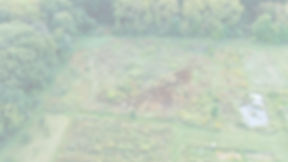
A Center for Place-Based Learning
Pollinators
The East 40 acreage is home to a myriad of pollinators, including several types of bees,
hummingbirds, butterflies and other kinds of insects.
Our property is a certified as a Monarch Waystation, one of over 35,000
such sites through the national Monarch Watch.

Bees
Sharon Zondag comes from an extended family line of beekeepers. As the 4th generation beekeeper, Sharon was introduced to the beekeeping world at a young age. Her grandfather was a farmer and the apple orchard was where the bees were kept. Her grandfather had about 100 hives, all in the Susquehanna Valley and Binghamton areas.
Living along the Susquehanna River, Sharon grew up in the Appalachian area and started her beekeeping journey here during high school. However, she took a break from beekeeping after high school and decided to pursue other ventures.
One day at her father’s house, she was watching the bees go in and out of the hives. Fascinated and inspired, she questioned why she couldn't work with bees and decided that day that’s what she really wanted to do.
Getting back into beekeeping, Sharon was now living in Bethlehem, PA, but didn’t know if it was appropriate to have swarms in her backyard, living in a place more urban than the rural settings she was used to tending to bees. She attended Northampton Community College’s Opening Days in 2010, where Kelly Allen held a session regarding a vision for a community garden at NCC.
Kelly spoke of five goals needed to accomplish his vision of a community garden; the last goal on the list was to have a beekeeper on-site. Shocked that beekeeping was even on the list, Sharon asked Kelly if having a beekeeper could be moved to the first to-do item on the list and if she could have this responsibility.
Sharon joined the Beekeepers Association in 2011 and attended Cornell University in 2012 to pursue the Beekeeping Apprenticeship. Sharon’s dad surprised her that year with her first swarm.
Soon after, the swarm grew from one to ten, with seven swarms at NCC’s East 40 Gardens and three at Sharon’s home.
Two swarms of the original seven remain at NCC and will be experiencing their fourth winter at the East 40, an impressive run since Pennsylvania loses about 50% of its bee population each winter.
Contrary to popular belief, bees do not hibernate in the winter. In the colder months, the worker bees huddle around the queen in a swarm, about the size of a football, in an effort to keep the queen warm. The swarm boxes are wrapped and insulated, and the bees are given fondant and winter patties to sustain them through the winter season. Bees are also able to feed off of their own honey if necessary.

QUICK FACTS
-
Currently there are about 2.75 million bee hives in the United States - there were over 6 million in WWII
-
There are about 212,000 beekeepers in America -about 4,000 in each state
-
30% of the food we eat requires pollinators
-
70% of that pollination is accomplished by honeybees
-
60% of the honeybees migrate to almond orchards each winter using commercial pollination.

For those looking for more information or to get involved in beekeeping and helping bee populations, please refer to these resources:
Lehigh Valley Beekeepers Association - Over 100 years old, this organization offers an affordable way to attend meetings and explore interests. They offer a winter series, and an annual membership is $15. They have a club apiary at Lehigh-Carbon Community College for on-hands learning.
Penn State Extension Webinars and articles - Offers beekeeping basics, Beekeeping 101 and many more resources.
Meadow View Beekeeping, LLC - Kutztown, PA - Founded by knowledgeable beekeeper, Steve Finke, Meadow View provides ‘all things beekeeping’ including supplies, tours and helpful staff.
Buy local honey - Most imported honey is from China, which is currently banned. However, China heats honey that is exported to destroy the fingerprint in pollen, so buyers can’t trace its origin. Pollen grains are an identifier, where we are able to tell where honey originates from (by region), also known as a ‘fingerprint’. Additionally, honey that is exposed to high heat destroys its nutritional properties.
Think about gardening for purpose rather than just pleasure - There are 8000 types of bees, servicing a large amount of fauna which requires pollen and nectar. By incorporating thoughtful landscaping and vegetation in gardens and outdoor spaces, you can help pollinators thrive.
Edge of the Woods Nursery, Route 100, Orefield, PA - A great local resource for teaching how to better provide for pollinators that can exist in your landscaping and garden.
We kindly ask that you do not approach the bee swarms without supervision and permission. If you would like to visit the bees at the East 40 Gardens, please contact us.